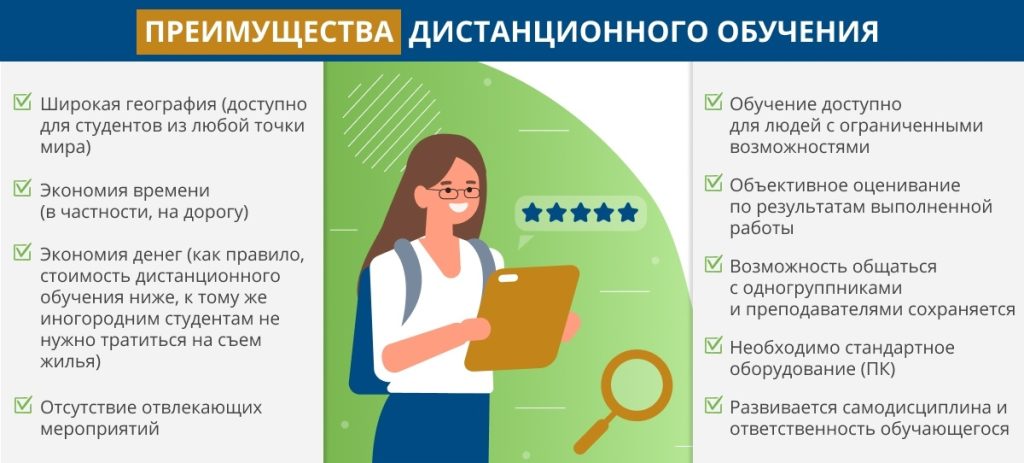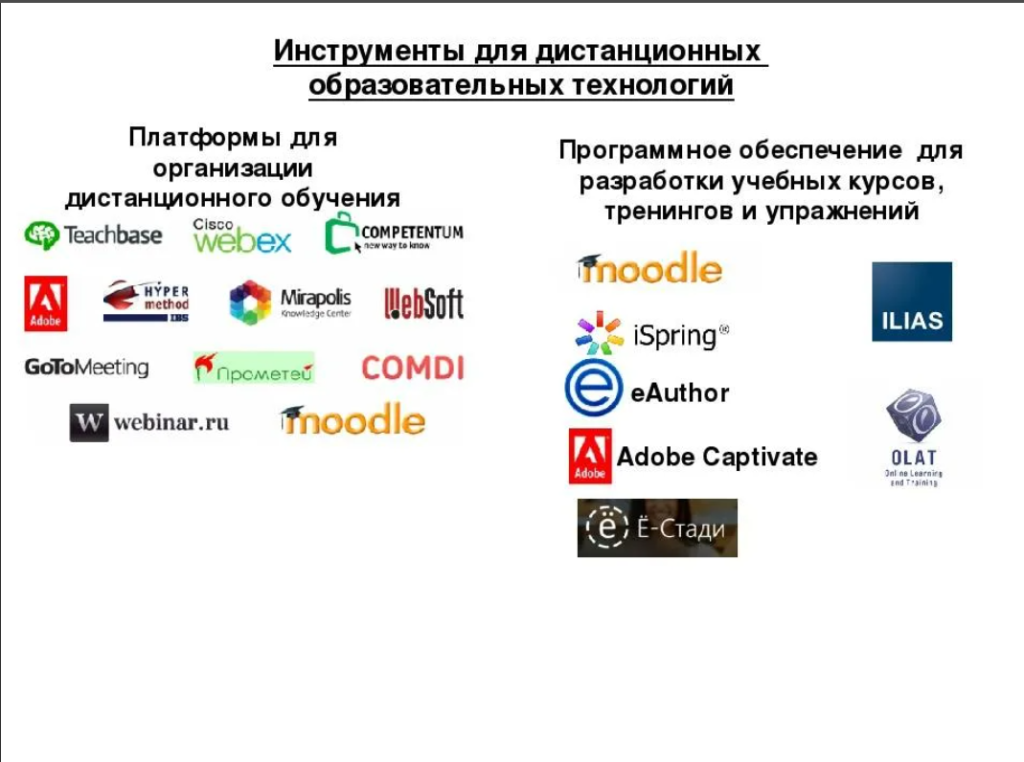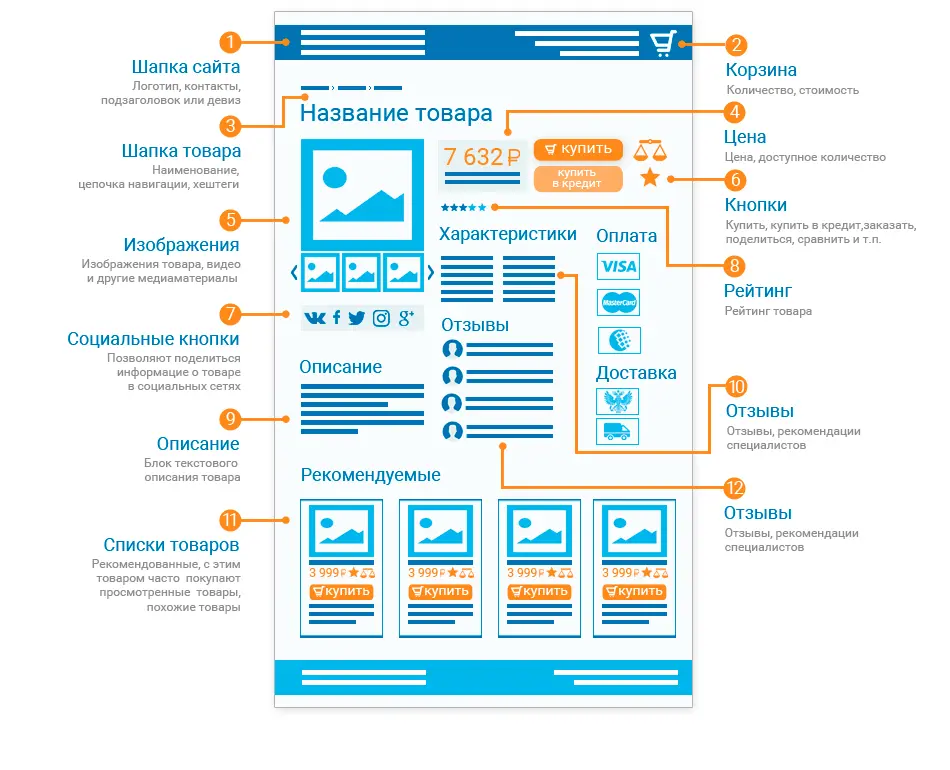What is online education?
Online education is a modern approach to education based on the use of internet technologies and resources. This learning format is becoming increasingly popular, attracting the attention of students, teachers, and educational institutions. Online education offers numerous opportunities to acquire knowledge and skills online.
What can you learn online and who is it suitable for?
Let's look at some key areas where it can be useful.
Academic subjects
Online education offers the opportunity to study a wide range of academic subjects, including mathematics, physics, chemistry, history, and much more. Students can choose courses that match their interests and level of knowledge and study the materials at their own pace. This is especially useful for those who lack access to quality education in their region or who want to expand their knowledge in a specific field.
Professional development
Online education offers a wide range of courses and programs aimed at professional development. This can include learning new skills, exploring specific industries, or upgrading skills in a particular field. Workers can study in their own time and acquire the knowledge necessary for a successful career. Online education also provides the opportunity to network with professionals from around the world, facilitating the exchange of experiences and the creation of valuable business connections.
Language skills
Online education is an excellent way to learn foreign languages. Numerous online platforms and apps offer courses and exercises that help develop reading, writing, speaking, and understanding skills in different languages. This is especially useful for those who want to expand their communication skills in an international environment, whether for work or travel.
Digital literacy skills
IN Digital literacy is becoming increasingly important worldwide. Online education helps develop skills in computers, software, the internet, and digital tools. This includes learning the basics of programming, website design, data analytics, and other skills that can be useful in today's information society.
Online education is suitable for a wide range of people:
- Students who require flexibility in their learning process. Online education allows them to study materials at their own pace, allowing them to manage their schedule and learning pace.
- Working people who want to develop their professional skills and improve their qualifications without leaving their jobs. Online education gives them the opportunity to study in their free time and stay ahead in their field.
- People who live in remote areas or lack access to quality education. Online education helps overcome geographic and infrastructural limitations, providing the opportunity to receive an education anywhere.
- Inquisitive people who want to expand their knowledge and explore new subjects. Online education offers endless opportunities for self-education and self-development in various fields.

Benefits of online learning
Online learning is becoming an increasingly popular and sought-after method of acquiring knowledge. It offers numerous advantages that make it attractive to students and teachers. In this article, we'll explore the main benefits of online learning.
Flexibility and accessibility
One of the key advantages of online learning is its flexibility. Students can study at their own time and pace. They aren't constrained by class schedules and can plan their own learning. This is especially important for those with other commitments, such as work or family. With online learning, they can study in their free time or even on the go using mobile devices.
Furthermore, online learning allows students to access courses and materials that were previously unavailable to them in their home countries. They can choose any course or program offered in any country without leaving their home. This is especially useful for those living in remote areas or countries with limited educational opportunities.
A variety of courses and training materials
The internet offers a vast variety of courses and educational materials on a wide range of topics. Students can choose from thousands of online courses offered by leading universities and educational platforms. They can explore cutting-edge scientific discoveries, gain professional skills, or develop their creative abilities. The possibilities for online learning are virtually limitless.
Interactivity and practical application of knowledge
Online learning offers a variety of interactive tools and methods that make the learning process more engaging and effective. Students can participate in interactive assignments, discussion forums, chat rooms, and webinars, where they can share knowledge and experiences with other students and instructors. This encourages active student engagement in the educational process and allows them to apply their acquired knowledge in practice.
Individual approach and independent learning
Online learning allows students to personalize their learning experience. They can study materials at their own pace and focus on the aspects that are most interesting and important to them. This is especially useful for those studying outside of formal educational institutions or who prefer independent learning. Students can select specific courses or modules that meet their goals and needs.
Economic benefit
InteOnline learning can be more affordable than traditional forms of education. Many online courses offer free access to core materials and lectures, allowing students to explore the topic without having to invest large sums of money. Furthermore, online education eliminates the need for additional expenses such as accommodation, food, and transportation, making it more cost-effective.

Disadvantages of Online Learning
Despite all the benefits of online education, there are also a number of disadvantages that are worth considering.
- Lack of personal contact and interaction. One of the main drawbacks of online education is the lack of face-to-face interaction with the instructor and other students. Face-to-face contact and interaction in the classroom facilitate deeper understanding of the material, the exchange of ideas, and the formation of strong bonds with colleagues. A virtual learning environment cannot always provide the same level of engagement and emotional connection.
- Limited access to practical skills. Although the internet offers numerous courses and lessons on various subjects, it cannot always provide comprehensive practical training. Some professions require skills that can only be acquired through hands-on experience, hands-on training, and the supervision of experienced professionals. Online education cannot always provide this opportunity.
- Lack of motivation and self-discipline. Online education requires a high level of self-discipline and self-motivation on the part of the student. Unlike traditional education, where there is a schedule of classes and a teacher monitoring the learning process, online education requires self-organization and the ability to work independently. Some students may find it difficult to cope with these demands and maintain a consistent interest in their studies.
- Limited access to resources and materials. Although the internet offers a wealth of information, access to certain resources and materials may be limited or subject to fees. Some textbooks, journals, and research may only be available through paid subscriptions or platforms. This can create barriers for students, especially those with limited financial resources.
- Lack of an academic atmosphere. Traditional educational institutions create a unique atmosphere where students are surrounded by classmates, professors, and opportunities to participate in academic activities, research, and discussions. Online education may not be able to fully replace this academic atmosphere and opportunities to develop social skills.
- Insufficient regulation of the quality of educational resources. There are a huge number of educational resources online, but not all of them are of high quality and reliable. Much information is available without proper verification and regulation, which can lead to misunderstandings and misinformation among students.
- Limited social experience. Education in traditional institutions provides opportunities to develop social skills and interact with peers. Students can participate in various team projects, engage in discussions, and exchange ideas. Online education can be limited in this regard, reducing the opportunity to develop social skills and communication.

Free or paid – how to choose an online platform
There are many different platforms on the market, and choosing between free and paid options can be difficult. We'll explain how to choose the right online platform, considering the pros and cons of each option.
Free online education platforms like Coursera, Khan Academy, and edX offer access to a large number of courses, video lectures, and materials without payment. They are open to everyone and allow you to study a wide range of subjects, from programming and finance to art and literature. One of the main advantages of free platforms is their accessibility to everyone, regardless of financial means. Free platforms also offer flexibility in scheduling your learning, allowing you to study materials in your own time.
However, there are some drawbacks to consider when choosing free platforms. First, not all courses on free platforms provide certificates or academic achievements that can be useful when searching for a job or advancing your career. Second, the quality of education on free platforms can vary, and some courses may be less structured or less informative. Also, keep in mind that free platforms may have limited access to some materials or features that require additional payment.
Paid online education platforms like Udemy, LinkedIn Learning, and Pluralsight offer premium content and advanced learning opportunities for a fee. They often partner with major universities and companies to offer relevant courses and certifications that can be valuable when searching for a job or upgrading your skills. Paid platforms also typically have a more structured approach to learning, offering a sequence of lessons and assignments.
However, paid platforms aren't suitable for everyone. They require a financial investment, and not everyone can afford to pay for premium content. It's also important to be careful when choosing paid platforms to ensure their quality and reputation. Some platforms may be overloaded with ads or offer outdated content, so it's recommended to read reviews and ratings before making a choice.
So, how do you choose the right online education platform? First, determine your goals and needs. If you're simply interested in learning a new topic and gaining basic knowledge, free platforms may be ideal. They offer a wide selection of courses and materials. However, if you're looking to earn a certificate or academic recognition, as well as access to relevant and structured training, paid platforms are worth considering.
Also, pay attention to the platform's reputation and reviews. Research which universities, companies, or experts partner with the platform, and what learning experiences previous students have had. Pay attention to ratings and reviews to get an idea of the quality of the education offered.
Don't forget about your time and budget constraints, either. If you have limited time or budget, free platforms may be the best choice. However, if you're willing to invest in your education and value depth of knowledge and access to premium content, paid platforms may be a better option.
Ultimately, choosing between free and paid online education platforms depends on your personal preferences, goals, and capabilities. Regardless of your choice, remember that the most important thing is your motivation and persistence in learning. Online education offers a unique opportunity to expand your knowledge and skills, regardless of the platform you choose.
Conclusion
Overall, online education has its advantages and disadvantages, and its effectiveness depends on the specific circumstances and needs of the student. It's important to find a balance between online and offline education, leveraging the benefits of both approaches. Technological advances and the development of online platforms allow us to leverage the best of both worlds and create more accessible, flexible, and high-quality educational solutions for everyone.








